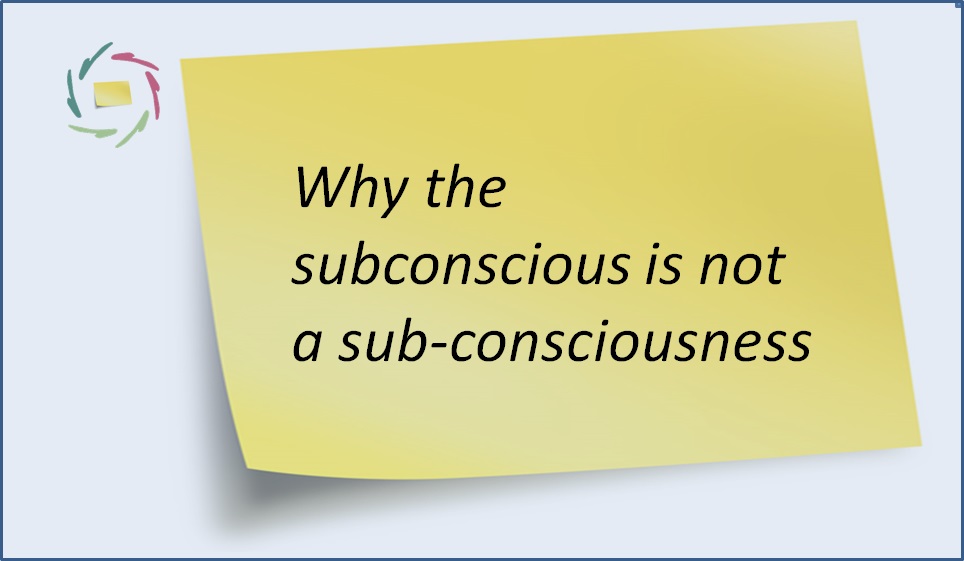67. Why the subconscious is not a sub-consciousness

Since Freud, and actually quite some time before, much has been said and written about ‘the subconscious’, in one form or another. Even so, many people still deny its existence. But if it doesn’t exist, then…
◊◊◊
who is processing millions of pieces of visual information?
who is continuously coordinating all muscles?
where does inspiration come from?
who does the dreaming?
etc. etc. etc. etc?
◊◊◊
A human brain contains +/- 1013 nerve cells. Like all other cells in the body, these are alive and active all the time through. Not always equally active, but active nevertheless. This activity produces several things, among which are waste products of metabolism, a lot of warmth, an enormous amount of neuronal communications at the cellular level, and yeah: consciousness of course. In all this, consciousness is what we can make ourselves ‘aware’ of. But we cannot become aware of what happens at the single-neuron-level in the brain, nor of most of what happens at any level. We can only become conscious of a tiny little bit of all the business and fuzziness that goes on in the brain. Underneath lies an enormous amount of neuronal processing, that one can all together call :
◊◊◊
the subconscious.
◊◊◊
Many people who acknowledge the existence of the subconscious, think it’s something like consciousness ‘behind closed doors’. That cannot be but very far from the truth. Back to the cells. There is no human-level consciousness in cell-level processing. A cell is simply not a human. Neither is there human-level consciousness at the level of bunches of cells or even whole domains in the brain. Only the complete and conscious person performs conscious-level thinking: that is: relying almost exclusively on concepts and concept-based associations. The levels underneath display a huge amount of associative processing of quite another nature, namely with reliance mostly on sub-conceptual patterns. These patterns overlap each other to a much higher degree than concepts do. This makes for a huge difference.
◊◊◊
The downside is that this makes these patterns much less crisp and ‘clear’ (therefore: not apt for awareness). The upside is that much broader associations can be made in a much more robust way and much more simultaneously. In other words: more ‘poetically’ or ‘symbolically’.
◊◊◊
Apart from probably a tiny bit, the subconscious is not conscious processing that is repressed, as Freud would have it, but mental processing that principally can not be made conscious. In a way, it is from start on too subconscious to ever become conscious.
◊◊◊
The subconscious is not the water in the cloud but the cloud itself. If it rains, the cloud disappears. There is rain instead, but the cloud has gone. The cloud is not ‘rain behind closed doors’. It is not rain at all.
◊◊◊
Which is perfect.
◊◊◊


